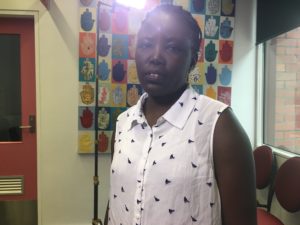Migrants face multiple barriers in finding work – survey
 A lack of local work experience and a foreign sounding name are among the barriers new arrivals to Australia face in finding work here, a new survey has found.
A lack of local work experience and a foreign sounding name are among the barriers new arrivals to Australia face in finding work here, a new survey has found.
It also found that migrants felt excluded by recruitment processes and that a majority of jobseekers would take any job offered to them.
The survey, carried out by migrant and refugee settlement agency AMES Australia canvased 357 migrant and refugee jobseekers at Hume and Dandenong in Melbourne and at Auburn and Bankstown, in Sydney’s west, during July and August 2017.
The areas surveyed have adult unemployment rates of around 7.2 per cent – significantly higher than the national adult jobless rate of 5.6 – and all have high populations of culturally and linguistically diverse (CALD) people.
The jobseekers surveyed came from 29 countries and more than 60 per cent came from just six countries: China, India, Vietnam, Syria, Afghanistan and Lebanon.
The survey found almost a third of CALD jobseekers (29 per cent) believed that a lack of local experience was the biggest barrier to finding while almost quarter (24 per cent) cited English language proficiency.
Twenty-one per cent said not securing an interview was the biggest barrier. Interestingly, in focus groups conducted as part of the survey, several respondents who cited ‘not getting an interview’ as a barrier said they believed having a foreign sounding name was a factor in this.
A massive 89 per cent of respondents said recruitment processes did not give employers an understanding of the jobseeker’s abilities and 65 per cent of jobseekers had applied for more than 100 jobs since arriving in Australia.
The survey found that 71 per cent of jobseekers had been unemployed for more than a year, although a third of those who took part in focus groups said they had recently been caring for children.
Eighty-six per cent of respondents had worked before but only 43 per cent had received training from an employer in the past.
It found that 53 per cent of jobseekers were looking for unskilled work, 28 per cent skilled work and 19 per cent were looking for professional work. However, 61 per cent said they would take any job as a first step to employment in Australia and 74 per cent they would move to take up a job.
The survey found most jobseekers main reason for needing work was to support their families (53 per cent), 20 per cent said they needed extra money, 17 per cent said they wanted a career pathway and 10 per cent said that self-esteem was the key factor in wanting work.
The focus groups revealed that among people who cited ‘supporting families’ or ‘earning extra money’ as a reason for wanting work, there was a significant number who wanted or needed to send money to family living overseas.
The survey found 87 per cent of respondents believed there were not enough jobs to go around and only 23 per cent believed there was enough government support for jobseekers.
Just 23 per cent of respondents expected to get a position at the same level they had in their home country while more than 70 per cent did not.
But 83 per cent were confident of eventually finding work while seven per cent were not and 10 per cent were not sure.
Jobseeker Tsigeweni Gebresilasie, a refugee from Eritrea, says she has applied for dozens of jobs and has had few replies and no luck in securing one.
“I have applied so many times but I have not had many replies,” Ms Gebresilasie said.
“It is very hard to get work with no experience but it’s hard to get experience if you don’t have a job,” she said.
Ms Gebresilasie is now training with migrant and refugee settlement agency AMES Australian and hopes to get work in aged care or hospitality.
AMES Australia CEO Cath Scarth said: “This survey shows that people new to this country have a strong desire to work and contribute to the community.”
“We know that the overwhelming majority of migrants and refugees are resilient and have strengths Australia can use,” she said.
“The survey tells us that giving newcomers more support in their approach to job searching and the challenges of navigating the labour market will deliver benefits to them and to the nation as a whole,” Ms Scarth said.
Laurie Nowell
AMES Australia Senior Journalist












